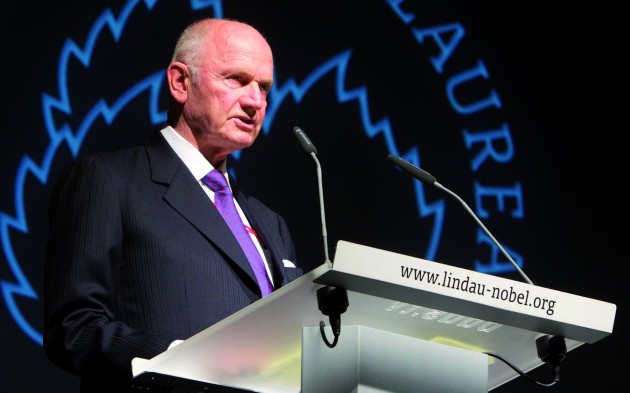Former chairman of the Volkswagen Group, Ferdinand Karl Piech was reported to have passed away Sunday in Bavaria, aged 82, according to Deutsche Welle. He is survived by his wife, Ursula, and 13 children from current and previous marriages.
Piech held his leadership role at the group until 2015 when he resigned following a protracted power struggle with then-CEO of Volkswagen Martin Winterkorn, which was followed shortly thereafter by the company’s battle with the beginning of the Dieselgate scandal.
Piech was born April 17, 1937 with Ferndinand Porsche as his maternal grandfather who sired the Volkswagen Beetle. Nephew to ‘Ferry’ Porsche who would go on to handle sports car production in Stuttgart-Zuffenhausen, Piech went to boarding school in Zuoz, Switzerland, and later on completed his masters in engineering at the Swiss Federal Institute of Technology in Zurich within eight semesters.
The first job for Piech was at Porsche, established by his uncle Ferry after the war. At this time, the then-31-year-old developed racing cars in secret as head of development at Porsche, with many iterations of the Porsche 917 race car which led to success at the 24 Hours of Le Mans for the German marque in 1970. Fierce disputes with family members reportedly led to Piech’s departure from the company, and in 1972 he joined Audi.
This would also be the first time since the end of World War II that anyone from the Porsche or Piech families took an official position of management within Volkswagen. Piech rose to Audi’s management board within three years of joining, where he was credited with transforming the brand into a genuine competitor to Mercedes-Benz and BMW. This also included the development of quattro all-wheel-drive, which would become synonymous with the brand.
The role of Volkswagen CEO was Piech’s from 1993 until 2002, a time which saw him lead the ‘people’s car’ brand out of financial struggle and back into profitability without large-scale job cuts, Bloomberg reported, which won him favour with labour unions and shareholders.
This stint was followed by Piech’s move to become supervisory board chairman in 2002, where his management style and acquisitions including Skoda, SEAT, Lamborghini and Ducati were credited for the group’s position as largest automaker in 2016, usurping Toyota from the top spot that year.
Possibly the most drawn-out of Piech-era acquisitions was that of Porsche in 2012. This predated Porsche’s own attempted takeover of the Volkswagen Group, which began in September 2005 when it announced its intention to buy a 20% stake in Volkswagen. Porsche gradually increased its stake in the company, though it racked up 10 billion euros in debt in the process, and failed to buy the targeted proportion of shares. Volkswagen turned the tables and bought Porsche.
Piech’s thirst for engineering excellence came with significant financial cost; the Bugatti Veyron, Volkswagen Phaeton and Audi A2 accounted for three out of 10 biggest loss-makers in modern automotive history, according to Sanford C. Bernstein & Co.
“In his plants, nothing rolled off the line that he had not inspected closely himself. He always wanted the technical optimum – this didn’t always have to be cost-efficient. This he then left up to others,” then-Porsche chief Wendelin Wiedeking described Piech to Handelsblatt.
“The life of Ferdinand Piech was characterised by his passion for the automobile and for the workers that made them. To the last, he was an enthusiastic engineer and car lover,” Ursula Piech said of her late husband.
Research Volkswagen Cars at
Related Cars for Sale on
Source: Read Full Article






















